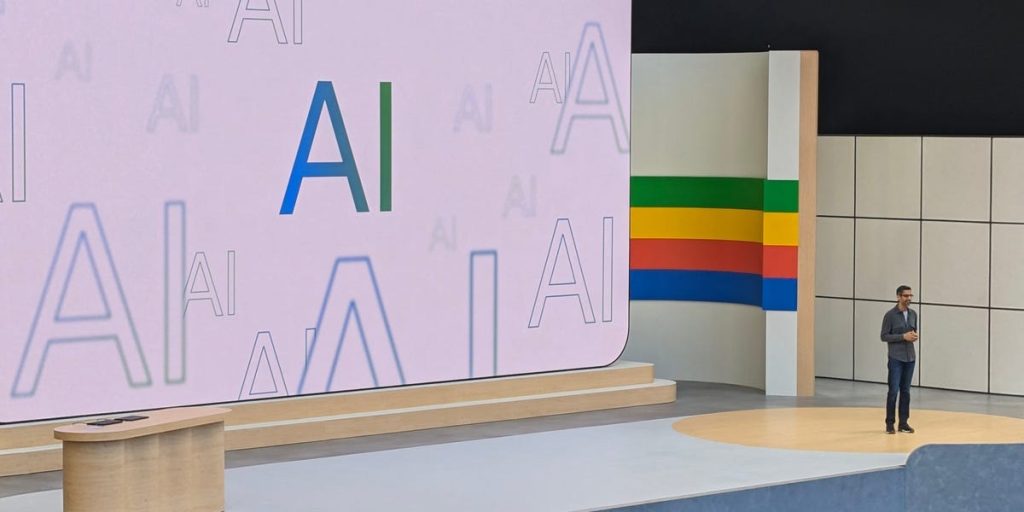Google’s AI Ambitions: A Focus on Efficiency and Innovation
Google CEO Sundar Pichai recently emphasized the company’s strong position in the AI race during its Q4 earnings call. Pichai downplayed the impact of DeepSeek, a Chinese startup that has garnered attention for its cost-efficient AI models, stating that Google’s own AI models, such as Gemini, are equally if not more efficient. He highlighted Google’s ability to optimize its models across cost, performance, and latency, positioning the company as a leader in the Pareto frontier—a benchmark for optimal trade-offs in these key areas. Pichai also expressed enthusiasm for the future of AI, noting that the reducing cost of inference (the process of generating predictions or conclusions from a trained model) will unlock new use cases and opportunities. This optimism underscores Google’s commitment to driving innovation in the AI space.
DeepSeek’s emergence and the AI arms race
DeepSeek has made waves in the tech industry by launching AI models that compete with those of OpenAI, reportedly at a significantly lower cost. This has raised questions about the hefty investments tech giants like Google are making in AI development. Pichai acknowledged the startup’s “tremendous” team but reiterated that Google’s models, such as the Gemini series, are highly efficient and comparable to DeepSeek’s offerings, including the V3 and R1 models. He attributed Google’s edge to its end-to-end optimization capabilities, full-stack development strength, and relentless focus on reducing the cost per query. This assurance comes as Google plans to spend $75 billion on capital expenditures this year, a figure that exceeded analyst expectations and initially weighed on the company’s shares.
The Shift Toward Inference and Cost Efficiency
Pichai also highlighted the growing importance of reasoning models in accelerating the shift toward inference spending. Inference refers to the phase where an AI model generates predictions or decisions after being trained. As AI models become more advanced, the cost of using them—rather than training them—becomes a critical factor in scalability and adoption. Google’s emphasis on reducing the cost per query reflects its strategy to make AI more accessible and practical for a wide range of applications. Pichai described this trend as a significant opportunity, noting that the decreasing cost of AI usage will enable more businesses and developers to leverage these technologies.
Google’s Gemini Models: A Benchmark for Efficiency
Google’s Gemini models were a key focus of Pichai’s remarks. He noted that these models excel on the Pareto frontier, balancing cost, performance, and latency more effectively than many competitors. The Gemini 2.0 Flash models, in particular, have been praised for their efficiency, even when compared to DeepSeek’s V3 and R1 models. Pichai attributed this success to Google’s comprehensive approach to AI development, including robust end-to-end optimization and a strong focus on cost reduction. This strategy not only positions Google as a leader in the AI race but also ensures that its models remain practical and scalable for real-world applications.
The Broader Implications of AI Investment
The massive investments being made in AI by Google and other tech giants have come under increasing scrutiny, particularly as startups like DeepSeek demonstrate the potential for cost-efficient solutions. Pichai’s comments suggest that Google is confident in its ability to maintain a competitive edge while continuing to innovate. However, the $75 billion capital expenditure plan for 2023 indicates that the company is doubling down on its AI ambitions, even as investors weigh the risks and rewards. The emphasis on efficiency and cost reduction signals that Google is not only chasing technological advancements but also aiming to make AI more sustainable and accessible in the long term.
The Future of AI: Opportunities and Challenges
Pichai’s remarks paint a bullish picture of AI’s future, with Google well-positioned to capitalize on emerging opportunities. The company’s focus on efficiency, innovation, and scalability suggests that it is not only responding to competitors like DeepSeek but also setting the pace for the industry. As AI continues to evolve, the ability to balance cost, performance, and latency will become increasingly important. With its Gemini models and broader AI strategy, Google appears ready to lead the charge into this new era, ensuring that its investments in AI deliver value for both the company and its stakeholders.












